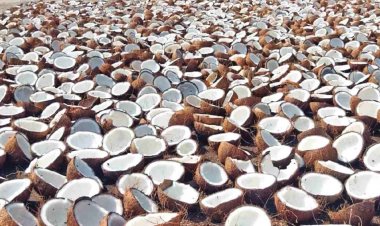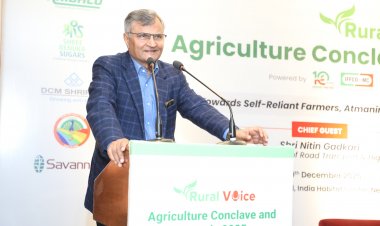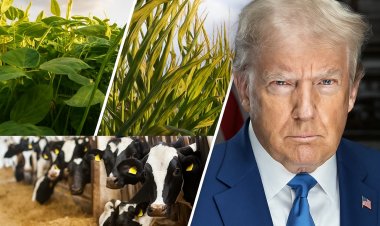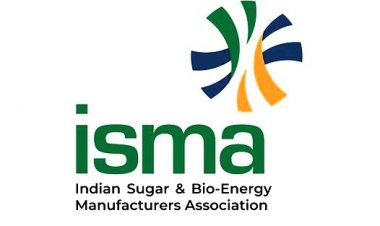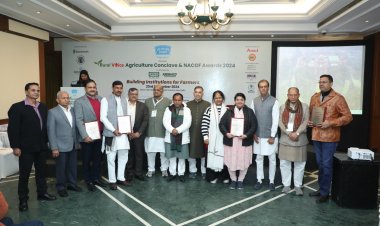Govt argues in SC that approval to GM mustard is in national interest, self-reliance to be achieved in edible oils
Calling the decision to approve the environmental release of GM mustard variety DMH-11 to be one in the national and public interest, the Union Government has said that the move is one in the direction of achieving self-reliance in edible oils. After the approval of the GM variety of mustard, the government has said this in the additional affidavit filed in the Supreme Court to present its side on this issue. The 65-point affidavit was submitted by the MoEF&CC on November 9. This affidavit gives detailed information about a host of issues regarding GM crops that include the approval procedure, legal provisions, safety standards for health and environment, field trials, expert committee, GEAC, biosafety standards and the effect of GM crops on bees. Twenty annexures have been attached with the affidavit. The affidavit contains a total of 772 pages, including the annexures.

Calling the decision to approve the environmental release of genetically modified (GM) mustard variety DMH-11 to be one in national and public interest, the Union Government has said that the move is one in the direction of achieving self-reliance in edible oils. After the approval of the GM variety of mustard, the government has said this in the additional affidavit filed in the Supreme Court to present its side on this issue. The 65-point affidavit was submitted by the Union Ministry of Environment, Forests and Climate Change (MoEF&CC) on 9 November 2022.
This affidavit gives detailed information about a host of issues regarding GM crops that include the approval procedure, legal provisions, safety standards for health and environment, field trials, expert committee, Genetic Engineering Appraisal Committee (GEAC), biosafety standards and the effect of GM crops on bees. Twenty annexures have been attached with the affidavit. The affidavit contains a total of 772 pages, including the annexures.
According to the information gathered by Rural Voice, the affidavit gives detailed information about the various stages of research and trials of DMH-11 and their review in several GEAC meetings as well as about collecting additional data and facts. It says that the government approved on October 25 the decision to recommend the environmental release of DMH-11 taken in the October 18 meeting of the GEAC. The affidavit also speaks about Biosafety Research Level 1 and Level 2 (BRL1 and BRL2) of GM mustard. Besides, it says that the GM variety is safe from the point of view of health and the environment. Citing the expert committee formed to give its opinion on the effect of DMH-11 on bees and pollen, the affidavit speaks about its recommendations and says that the committee had recommended the environmental release of DMH-11. Besides, it says that conditional approval has been given by the Indian Council of Agricultural Research (ICAR) to prepare its seeds for two years on the basis of growing it and gathering necessary data and facts.
The affidavit dwells at length to make it clear that the approval has also been given to develop parental lines through barnase, barstar and bar genes. It says that GM mustard has three transgenes — bar, which is a marker gene and confers resistance to herbicide Basta; barnase which brings about male sterility (MS); and barstar which restores fertility (RF). These genes have been isolated from a common soil bacterium Bacillus amyloliquefaciens.
All three genes were first used in rapeseed to develop hybrid seeds. In rapeseed, the MS and RF lines and their hybrids were released in Canada in 1996 and they have been produced there ever since. This has been going on in the US since 2002 and in Australia since 2007. The availability of better MS and RF system leads to the possibility of subsequently developing hybrids with greater yields and better oil and oilcake.
Regarding the herbicide tolerance (HT) of DMH-11, the affidavit says that the variety is herbicide-tolerant but it has been used only to develop seeds. Glufosinate ammonium has been used as a marker so that the seed being developed may have plants only of the targeted parental lines. In the case of its commercial release, farmers will not have to use herbicides. GEAC has not given its approval to this. Besides, facts regarding the use of glufosinate in the country and the legal provisions stipulated for it have also been given in the affidavit.
New hybrid varieties can be developed through the technology developed for the DMH-11 hybrid. Detailed information has also been given regarding how the technology works. Besides, the affidavit says that the productivity of DMH is 25-30 per cent higher. This has been proved in its field trials. The affidavit says that trials have been conducted at about a dozen places, including Ganganagar, Kumher, Bharatpur, Morena, Ludhiana and Delhi.
As far as the delivery of the DMH-11 seed to the farmers is concerned, the affidavit says ICAR will grow it and conduct field trials as per the standards prescribed. It is only when facts and data are gathered from these trials that any decision to commercially release it will be taken. The commercial use of DMH-11 hybrid shall be subject to the provisions of the Seed Act 1966. This procedure may take up to three years of time.
The affidavit says that India imports 55-60 per cent of its edible-oil requirements. This has an adverse effect on the prices. Mustard oil has a larger consumption in India. Also, mustard seeds have higher oil content. So, the government has decided to increase mustard production through GM mustard. Mustard is grown on about 80-90 lakh hectares in the country. The irrigated area for this crop has reached 83 per cent. Despite this, production is not going up as per expectations. Given this scenario, the production of GM mustard is a good option. Higher mustard production will lead to an increase in the farmers’ incomes. 45-50 per cent of the country’s population depends on agriculture.
Describing the oil of the GM varieties of oilseed crops as safe, the affidavit says that it is from GM varieties that the soybean oil and canola oil imported into the country are prepared. Also, 12 lakh tonnes of edible oil made from GM cotton seeds is being consumed in the country for food while 65 lakh tonnes of oilcake made from the same is being consumed as fodder. This has had no adverse effect on human health. Besides, the GM varieties of canola have been cultivated in the US, Canada and Australia for about a decade and a half now. But no adverse effect has been observed on bees or pollen there.
On 3 November 2022, after the hearing on the public interest petition from Aruna Rodrigues and Gene Campaign in relation to GM crops, the Supreme Court issued an order asking the government to file an additional affidavit. The Attorney General had sought consent for this. It is as part of this procedure that this affidavit has been filed. The apex court had scheduled 10 November 2022 for the next hearing and the government affidavit was filed on November 9. But there was no verdict in the November 10 hearing. The case will be heard next on November 17.



 Join the RuralVoice whatsapp group
Join the RuralVoice whatsapp group

















